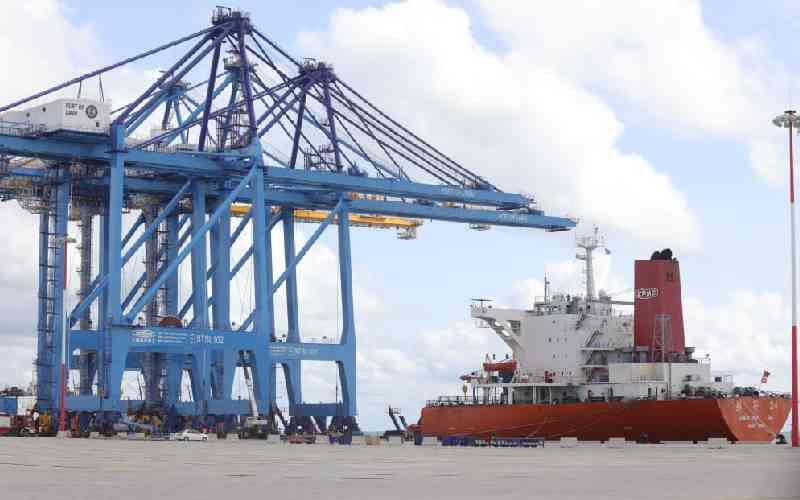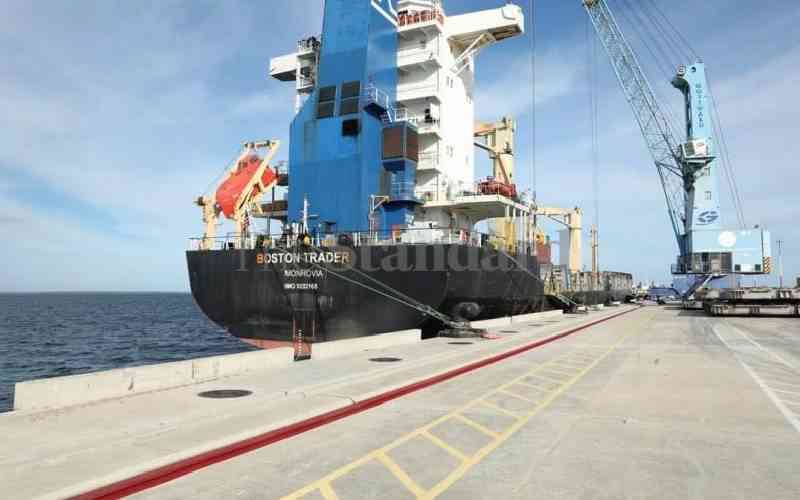It does not require much imagination to picture Lamu Island’s golden sunrise. From the cabro-paved main Sea Front Street, the glorious ball of orange unapologetically announces its arrival from the other side of the world. And all through its 12-hour journey across clear blue skies, the heat licks over every visible patch of skin, leaving sweat droplets struggling to find a path down a visitor’s brow.
A blue ocean, a caressing breeze and the pleasantly intrusive smell of sea fish add to the marvels of this world heritage site. But a series of unfortunate events have painfully brought this corner of heaven to its knees.
No one knows what it will take to bring it back to its feet, or who will hold Lamu’s hand and help this grand old sheikh rediscover the pleasure of tapping his feet to the seductive tune of the sea slapping against his harbour.
“Sisi ni kama vatoto. Serikali ni baba yethu. Amethuchapa ya kuthosha. Sisi hathuna silaha ya kupigana na mzazi vethu, ila tu tuna sauti ambazo twaweza tumia kulia. Akiskia kilio chetu basi pengine atathuhurumia aache kuthuadhibu (We are like children, and the Government is our father. He has punished us enough. We have no weapons to fight him with, but we can cry out. Perhaps, he will hear our cry and stop punishing us), Abubakar Mohamed says.
Mzee Abubakar has seen it all. He cuts the image of an old man at peace with his soul and his surroundings. When talking about the weather or the sweetness of fresh fish, his demeanour is calm. But a single world changes all this: Curfew.
Since July 20, Lamu County has been under what was initially announced as a month-long curfew. Three months later, residents say the curfew is doing more harm than good.
And, they say, it is time Kenya’s security chiefs rethink their strategy or else the island might find itself dealing with more than dwindling tourist numbers.
“Sio hati havajakuja huku kutafta vijana vetu. Vamejaribu... lakini hathukuvapa hio nafasi maanake vijana vetu valikua na makazi...vatalii valikuvepo...vageni vamejaa... sasa hawangekosa senti za kuendeleza boma zao,” Sheikh Abdurahman says.
Local sheikhs say they have fought off influence from radical preachers for many years.
“They have tried to recruit our young people, but failed because the local youth had homes and means of supporting themselves),” Aboud says.
You see, the Amu (Lamu Island residents) think of themselves as children of the water. The economy depends on items coming in or going out via boat. The biggest earner is tourism, supporting whole households for generations past, present and future.
After 215 kilometres from Malindi town via Mpeketoni, one finds himself in a dusty, flat patch of land called Mokowe. As soon as you park your car, young men, some with glazed eyes, approach, all smiles, hoping to port your luggage to a waiting speed boat.
“Tutatumia dakika ngapi kufika upande ule mwengine?” I ask.
“Mola atakavyopenda (That’s up to God),” the captain says. Here, it is pronounced ‘kep-ten’.
When his motor roars to life and the anchor is lifted, all is left in God‘s hands. Mashallah.
Stay informed. Subscribe to our newsletter
Kepten is in charge of Lady Gaga — no relation — a blue and white speedboat. He makes his trips bare-chested. Tufts of curly hair run along his torso.
He hides a large part of his face under a tattered baseball cap, and a bushy goatee completes his round face. Today is the first day of business after a strike in opposition to the three-month curfew.
Business has slowed to a trickle.
When the clock strikes 1pm, it is time for dhuhr (prayer after midday) on the mainly Muslim resort island.
Abdkadir Rahman aka Festo leaves Swafaa Mosque where he often goes for prayers. Festo is a tour guide. Despite dropping out of school in Class Three, he speaks French, Spanish and German.
Since he was 14, Abdikadir has earned a living by taking tourists around the major sites on the several islands that form Lamu East Constituency.
“Since 2012, things have been bad, particularly after the kidnappings. Things had begun to recover... but now, it is like someone wants us dead. They are killing us,” Festo says. “We don’t know what to do.”
A singular line of thought cuts across almost all residents of the island. For them, a conspiracy has been hatched to disenfranchise them more. Someone is after their way of life, and by extension, their lives and those of their children and grandchildren.
“If you were in our shoes, what would you say of this?” Mzee Abubakar asks, breathing hard enough to make his grey nose hairs sway under his breath. When he talks, he stares you straight in the face, perhaps a habit from his old days in the navy.
“For decades, we have welcomed people from all over the country. We were the first people to host displaced persons after the Shifta war. Now, our opinions no longer matter,“ the old man says.
Sheikh Abdurahman makes it clearer.
“Sisi tunahisi twanyanyaswa. Maoni yetu hayaskizwi. Watu wa Mpeketoni wakiongea wanasikizwa. Ni kwa nini? Sio kwa ubaya lakini tunaona ni sababu rais mkikuyu, county commander mkikuyu, intelligence pia mkikuyu. Inabaki sisi tukisema hatutaki curfew hatuskizwi (We feel like we are being mistreated. Our opinions are not taken but when those from Mpeketoni speak they are listened to.Why don’t they listen to when we say we do not want a curfew?”) he poses.
Their argument is simple. Ever since the abduction of the French tourist, the island has not had any major incident of insecurity. The recent killings in Lamu County were at Mpeketoni on the mainland. Yet, the islanders complain, they were also put under curfew.
“As far as we are concerned, the island is safe. We need to be allowed to carry on with our business. What gain is there if our sons and fathers cannot fish? If our businesses, which open from mid-morning until late at night, are closed? If our wives cannot sell food along the road at night? If tourists fear coming to this area? Are they thinking of us?” the sheikh asks.
He says the residents of Mpeketoni are farmers who work on their farms during the day and go home at night. However, the island depends on tourism, fishing and night time small-scale trade.
“Perhaps all this is part of a plan to take away our land. If the curfew persists, we will be unable to meet even our basic needs. Many will have no choice but to sell the little land they inherited and move elsewhere in search of work so that they can provide for their families.”
The ‘us’ versus ‘them’ mentality persists.
Abdul Wahid Mohammed Bilal blends into the white walls of the Lamu Post Office in his ankle-length white kanzu, a matching kofia and brown open shoes. He believes he has a long-term solution for the problems in the area if the Government will not only lift the curfew but also treat the islanders with more respect.
“The people from the mainland cannot do without us. If this continues, we shall start boycotting their shops and establishments,” Wahid says.
For him slow economic sabotage will be the only way for the islanders to gain some respect. But at what cost?
For the two days the islanders docked their boats in protest over the curfew, no food came in from the mainland. Up to 90 per cent of the food, except fish, spices and some fruit, is brought in from the mainland. Fuel, and other non-food items are almost singularly sourced the same way. Leaders say that a million shillings worth of trade is conducted daily at the Lamu produce market.
“It is a high stakes game. Unfortunately, none of the players has a flush in hand; they are just playing poker with our lives and those of our employees. There are no winners; just losers,“ says Mama Baraka, the owner of Whispers Coffee House and Restaurant.
Recently, the slump in tourism forced her to sack an employee who had worked for her for 27 years.
“I could see it in her face; it was worse than death. Employees are losing their jobs in all hotels, big or small. This will make our people opt for crazy alternatives,” she says.
Opposite the entrance to the coffee shop is a halua shop and a DVD vendor.
Mama Baraka swears that one evening, looking out over her first floor balcony, she could see men crowding around a TV set playing Islamic state videos of beheadings and expansion.
“Can we blame them, really?” she asks. “The island needs attention from the Government; not to be condemned but to be hugged and told everything will be alright. We need our Lamu back.”
Sheikh Abdurahman says the Government is partisan in dealing with matters Lamu. And he has a word of caution:
“Siku zote sisi waswahili husema ukicheza na shilingi chonyi, mwishoe itaingia kwa lindi,” he says. “Lazima wazingatie maoni yetu. Sisi pia tuna sauti la sivyo siku zijazo patakua na mpasuko mkubwa sana. Mji umejaa mafta. Ni kiberiti tu kimekosa. (The Swahili say that if you keep flipping a coin up and down, it will finally end up in a crack next to the road and you will lose it), Abdurahman says.
From the sheikh’s office, one can see the sun disappear behind the massive, smooth coral walls of the adjacent Lamu Fort. And as it sinks lower, making its way to other lands beyond the horizon everyone shifts into second gear.
Once the muezzin calls out for the Ishaaha (evening) prayers, a tangible rush engulfs the narrow streets. Women in buibuis walk along the cool, shadowed passageways of Old Town faster. There is less talk. Boat stewards drop anchors. When darkness finally descends, only nature gets away with noise.
For yet another night, Lamu refuses to tap his feet to the sounds all around him.
For another night he remains bound for his own security. But still, through his children - wa Amu - he sometimes sings: “Hili ndilo Lamu ataka onaye. (This is Lamu. Let he who wants come see it for himself).”
 The Standard Group Plc is a
multi-media organization with investments in media platforms spanning newspaper
print operations, television, radio broadcasting, digital and online services. The
Standard Group is recognized as a leading multi-media house in Kenya with a key
influence in matters of national and international interest.
The Standard Group Plc is a
multi-media organization with investments in media platforms spanning newspaper
print operations, television, radio broadcasting, digital and online services. The
Standard Group is recognized as a leading multi-media house in Kenya with a key
influence in matters of national and international interest.
 The Standard Group Plc is a
multi-media organization with investments in media platforms spanning newspaper
print operations, television, radio broadcasting, digital and online services. The
Standard Group is recognized as a leading multi-media house in Kenya with a key
influence in matters of national and international interest.
The Standard Group Plc is a
multi-media organization with investments in media platforms spanning newspaper
print operations, television, radio broadcasting, digital and online services. The
Standard Group is recognized as a leading multi-media house in Kenya with a key
influence in matters of national and international interest.









